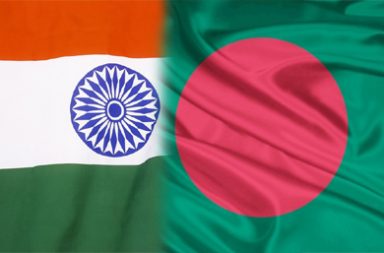The article was first published in Dhaka Law Review Blog (dhakalawreview.org).
By Preeti Sikder [1]
Law Review is scholarly legal journal edited and managed entirely by students of law. The degree of student involvement is what puts law review in a separate standing from regular journals. In law review, students select, edit, and publish articles and notes of the cutting edge legal scholarship. Through these activities, they develop research, editorial, administrative, and teaching skills. That is why law review is widely known extracurricular activity in law schools around the world.
So, law review responsibilities are assumed by students with no prior expertise. The editors are mere students who do not boast of deep knowledge in different areas of law. Then, how do they dare to edit the writings of experienced legal scholars and refine their arguments?
In fact, this inexperience of students is what pushes the reviews to be more authentic around the world. Because to really prove their editing skills, the student editors go through rigorous proof reading and source checking to ensure highest level of accuracy. John Gordon, publication specialist of a law review from Boston Law School, once famously said, “Accuracy is the currency of law reviews.” The worth of law review has passed the test of time. History shows that articles from different law reviews have been cited as persuasive authority in many court decisions.
Right now legal education in Bangladesh is in such a state where the voices of the students remain unheard. None of the Bangladeshi law schools have established any platform for students to run law journals.
Moreover, the few traditional law journals which are being published in Bangladesh do not involve law students in its editorial process. Due to irregular publication and bad distribution system, majority of the students do not even get to lay their hands on those journals. As a result, the quality of legal education in Bangladesh keeps on getting worse.
There is this very disappointing excuse for excluding students from editing process that students are not capable of ‘writing well’ let alone ‘editing’. Ironically, these same students are asked to write or edit these law journals once they graduate out of law school. So how do they become capable overnight?
Truth is, writing and editing skills cannot be mastered just like that, and legal writing requires special coaching. To give students an opportunity to master their writing skills as well as to enrich the legal literature of the country, Dhaka Law Review has started its journey in June 2013.
Dhaka Law Review (DHLR) is a self-supporting student body working to publish the first student edited law journal in Bangladesh. The team is comprised of students from Dhaka University Law Department. DHLR is fully independent of the law faculty and any kind of administrative supervision.
DHLR exist to serve two purposes – to contribute to the legal scholarship of the country and to train law students by providing writing, editing and administrative exposure. Every year, we seek to publish articles, essays and book reviews by legal scholars, as well as notes and comments by student editors of the Law Review and other Law students from University of Dhaka.
To enable its members to change the future of legal scholarship in Bangladesh, Dhaka Law Review extends its activities in smart ways. Last year, DHLR organized the Dhaka Law Review Public Lecture Series, which aimed at presenting cutting-edge research on issues of real relevance to our life before the widest possible audience and provoke discussions and debate. Dhaka Law Review also publishes own blog where again contributors range from academicians to practitioners to law students.
Feeling pumped up to be a part of this journey? Why don’t you start writing for DHLR blog?
___________________________
[1] Preeti Sikder is a Lecturer at the Department of Law and Human Rights, University of Asia Pacific. She received the Prof KAA Quamruddin Memorial Fellowship at the Human Rights Summer School organized by ELCOP in 2013, and has published a research paper on climate justice in the same year. Ms. Sikder has also worked as Research Assistant at the Bangladesh Institute of Law and International Affairs (BILIA) and volunteered for the Human Rights Law Clinic under UNESCO Madanjeet Singh South Asian Institute of Advanced Legal and Human Rights Studies (UMSAILS).



